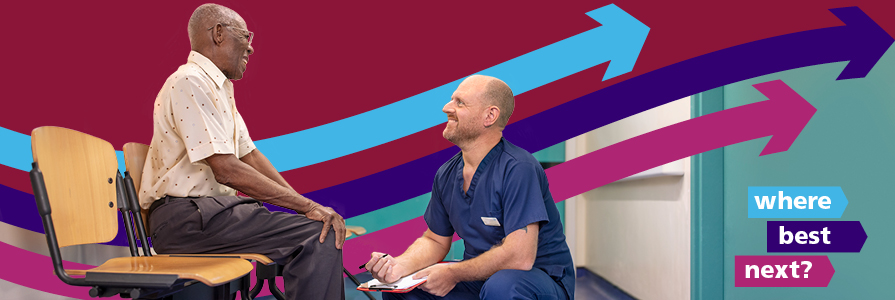Reducing long stays: Where best next campaign
Why not home? Why not today?
It’s much better for a patient’s physical and mental wellbeing to leave hospital as soon as they are medically optimised for discharge. There’s lots of evidence to support this. Yet each year, nearly 350,000 patients spend more than three weeks in acute hospitals.
This is why it’s so important we do everything we can to enable our patients, particularly older people, to continue their recovery in their own home environment or, for those few who cannot go straight home from hospital, within a care location most suited to their needs. Think ‘Why not home? Why not today?’ every day.
Making this happen is a team effort and we all have a part to play. As healthcare professionals, there are several practical actions you can take to help get patients to the best place for them.
The five key principles
NHS England and NHS Improvement have worked with a number of partners to identify five key principles which can help ensure that patients are discharged in a safe, appropriate and timely way.
The five principles relate to different stages of a patient’s stay: some to the moment of admission, some to their time on a ward and some to the end of their stay.
- Plan for discharge from the start
- Involve patients and their families in discharge decisions
- Establish systems and processes for frail people
- Embed multidisciplinary team reviews
- Encourage a supported ‘Home First’ approach
Key actions for different roles
Underneath each key principle there are specific actions relevant to different healthcare professionals.
By following these actions and thinking ‘Why not home? Why not today?’, we can reduce long stays and get patients to the best place for their recovery.
Other practical things you can do
- Learn from case studies of other hospitals who are already successfully delivering a reduction in long stays
- Use the Plan, Do, Study, Act (PDSA) approach to pilot new approaches
- Explore the resources available to help you

